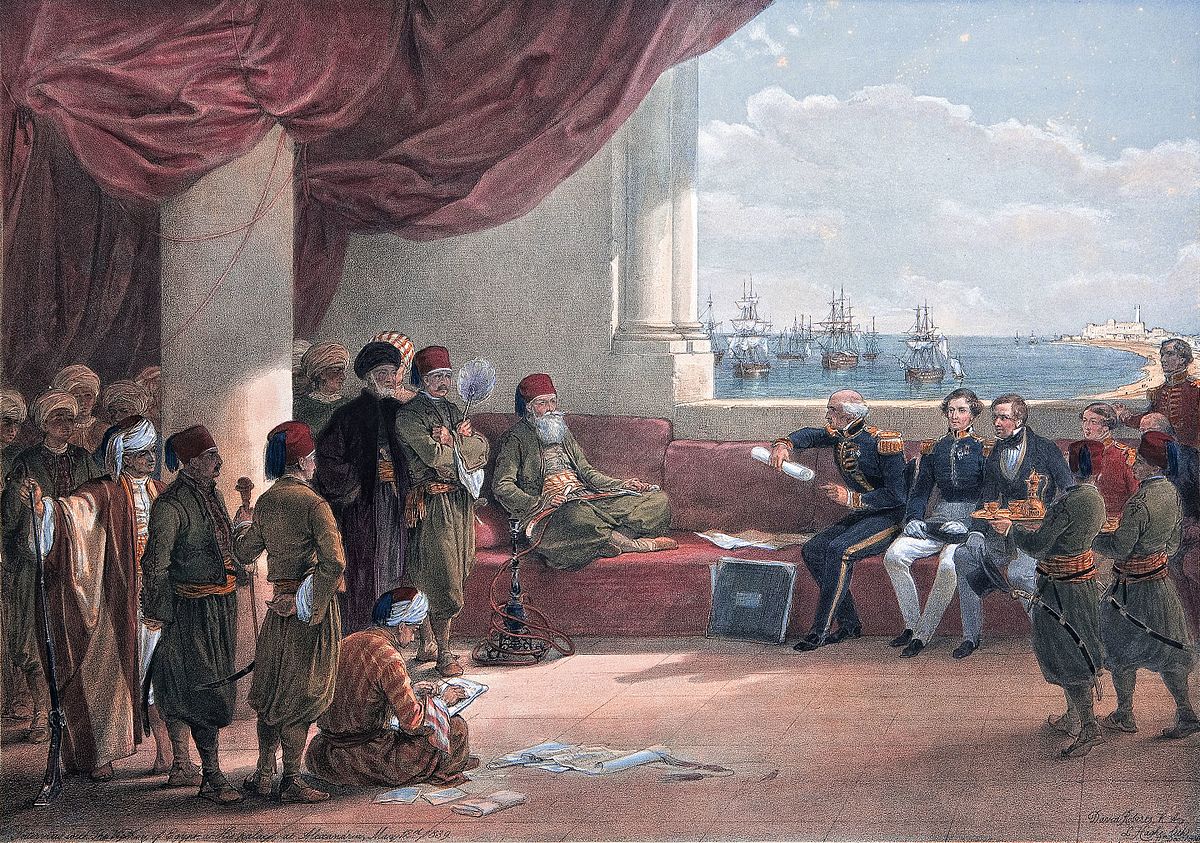
Egypt under the Muhammad Ali
EgyptThe Muhammad Ali dynasty, spanning from 1805 to 1953, marked a transformative era in Egyptian history, encompassing Ottoman Egypt, the British-occupied Khedivate, and the independent Sultanate and Kingdom of Egypt, culminating in the 1952 Revolution and the establishment of the Republic of Egypt. This period of Egyptian history under the Muhammad Ali dynasty was marked by significant modernization efforts, nationalization of resources, military conflicts, and increasing European influence, setting the stage for Egypt's eventual path towards independence. Muhammad Ali seized power amidst a three-way civil war between the Ottomans, Mamluks, and Albanian mercenaries. By 1805, he was recognized by the Ottoman Sultan as Egypt's ruler, marking his undisputed control.
Campaign Against the Saudis (Ottoman–Saudi War, 1811–1818)
Responding to Ottoman orders, Muhammad Ali waged war against the Wahhabis in Najd, who had captured Mecca. The campaign, initially led by his son Tusun and later by himself, successfully recaptured Meccan territories.
Reforms and Nationalization (1808-1823)
Muhammad Ali initiated significant reforms, including land nationalization, where he confiscated lands and offered inadequate pensions in return, becoming the primary landowner in Egypt. He also attempted to modernize the military, which led to a mutiny in Cairo.
Economic Developments
Under Muhammad Ali, Egypt's economy saw the fifth most productive cotton industry globally. The introduction of steam engines modernized Egyptian industrial manufacturing, despite the initial lack of coal deposits.
Invasion of Libya and Sudan (1820-1824)
Muhammad Ali expanded Egyptian control into eastern Libya and Sudan to secure trade routes and potential gold mines. This expansion was marked by military success and the founding of Khartoum.
Greek Campaign (1824–1828)
Invited by the Ottoman Sultan, Muhammad Ali played a significant role in suppressing the Greek War of Independence, deploying his reformed army under his son Ibrahim's command.
War with the Sultan (Egyptian–Ottoman War, 1831–33)
A conflict emerged over Muhammad Ali's ambition to extend his control, leading to significant military victories in Lebanon, Syria, and Anatolia. However, European intervention halted further expansion.
Muhammad Ali's rule ended in 1841 with hereditary governance established in his family, although with restrictions emphasizing his vassal status to the Ottoman Empire. Despite losing significant power, his reforms and economic policies had lasting impacts on Egypt. After Muhammad Ali, Egypt was ruled by successive members of his dynasty, each grappling with internal and external challenges, including European intervention and administrative reforms.
British Occupation of Egypt (1882)
Growing discontent and nationalistic movements led to increased European intervention, culminating in the British occupation of Egypt in 1882 following military action against nationalist revolts.
